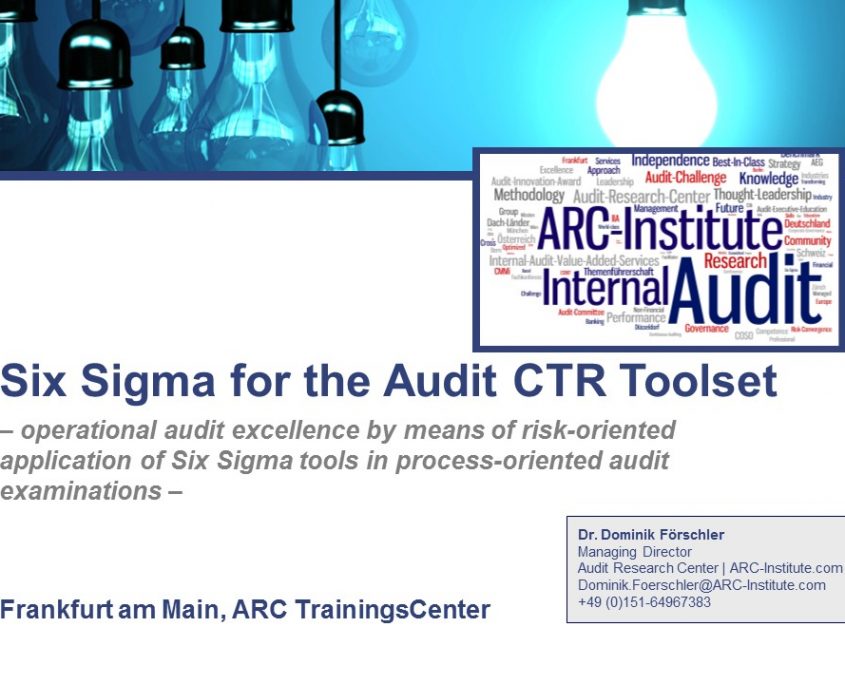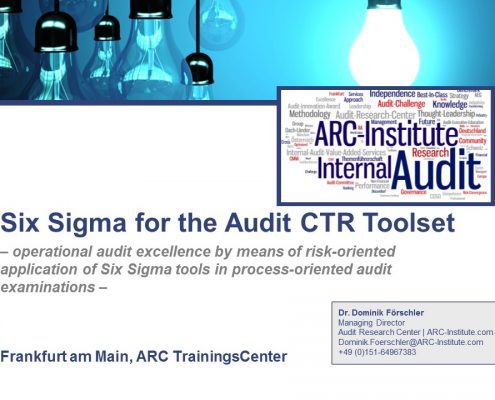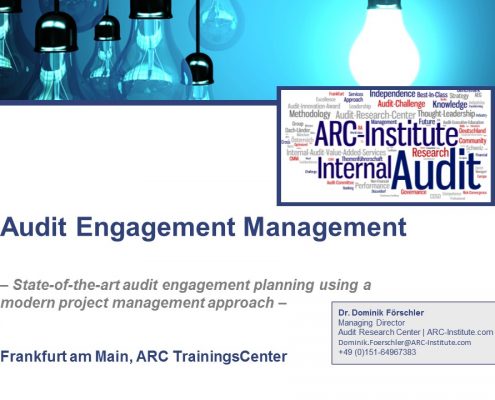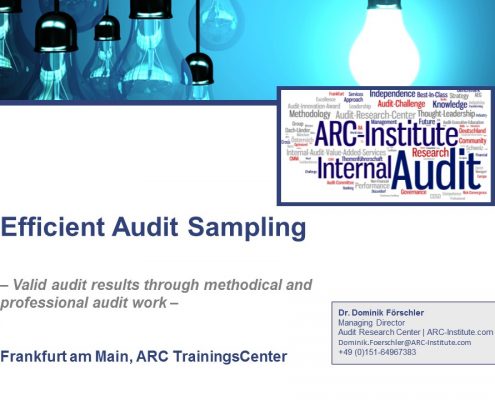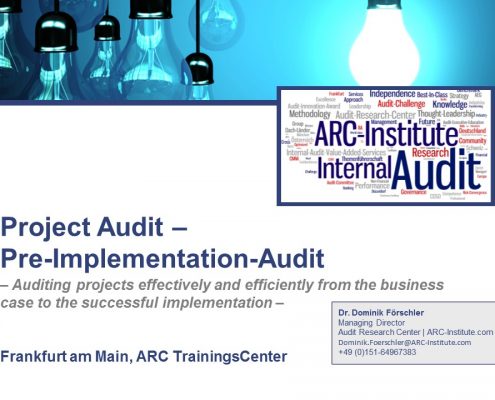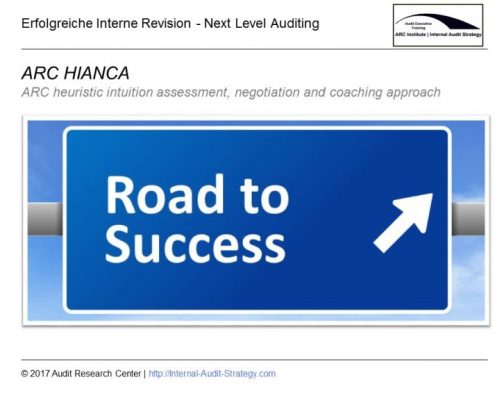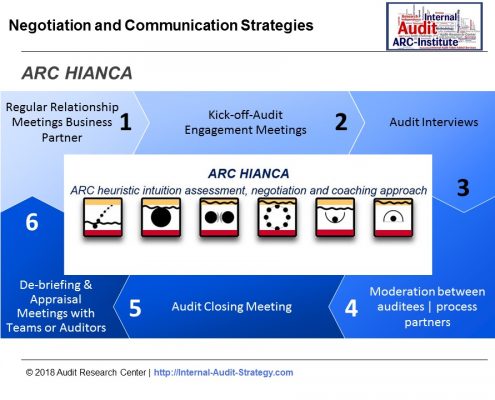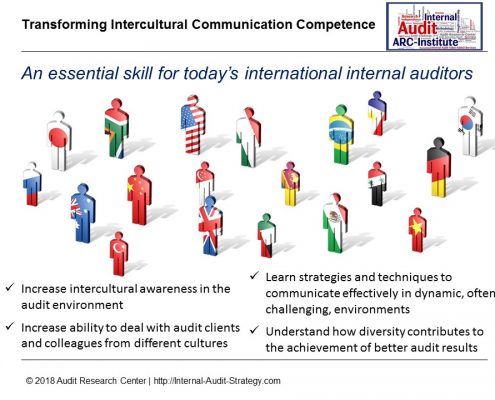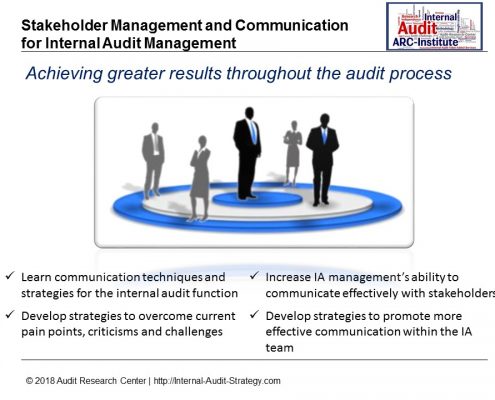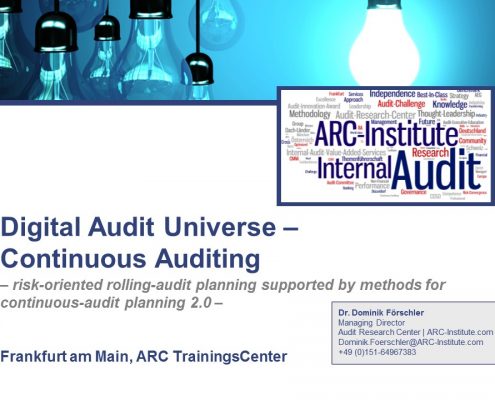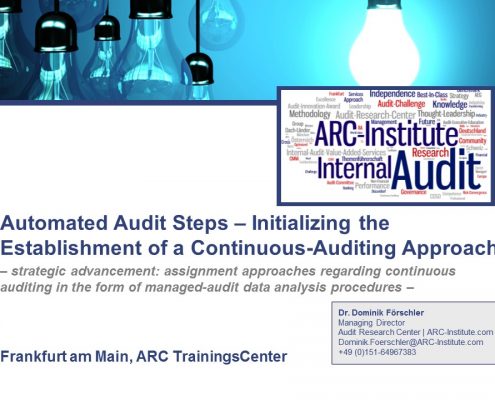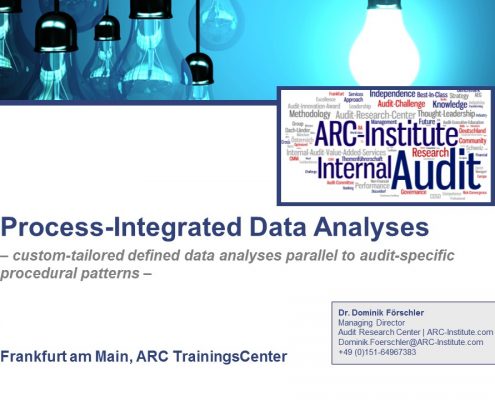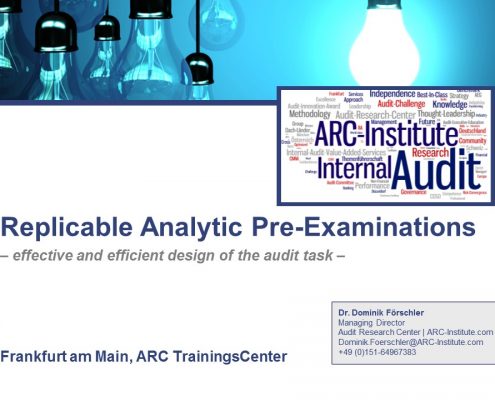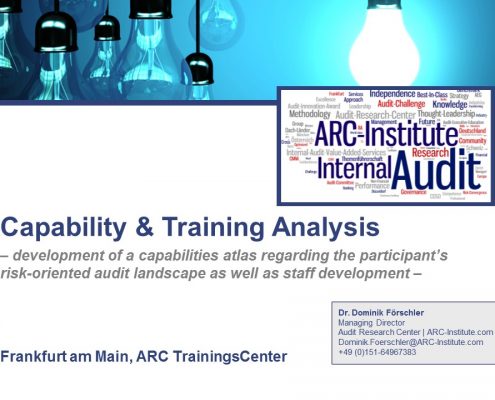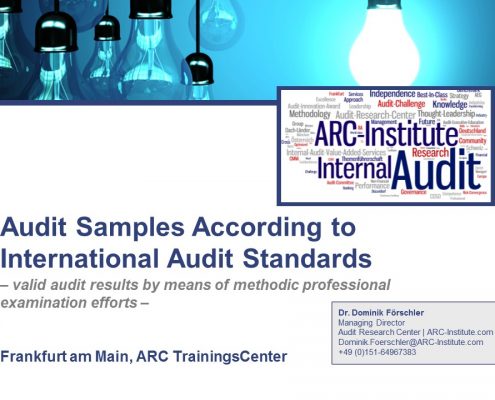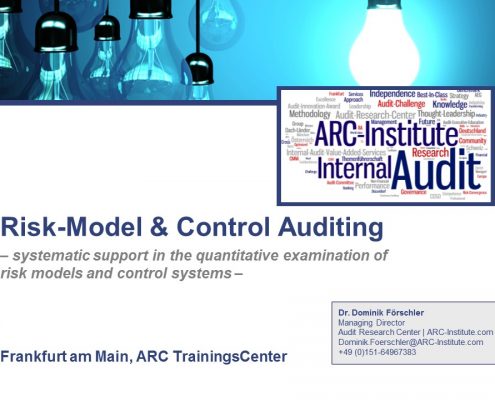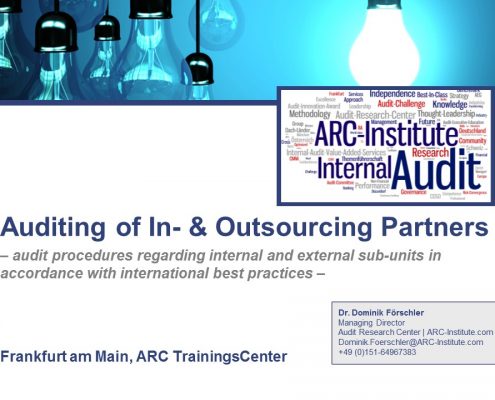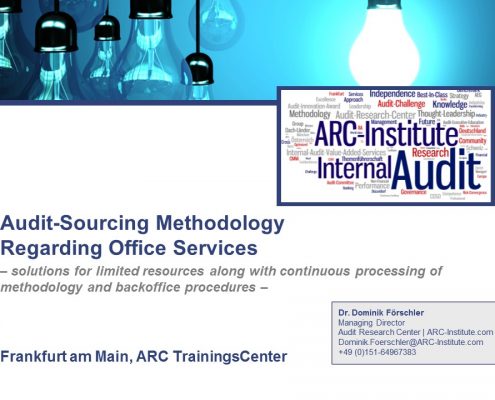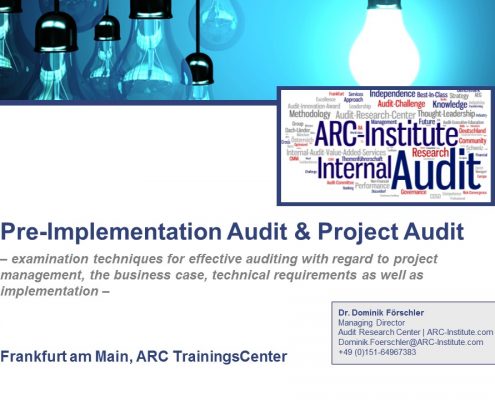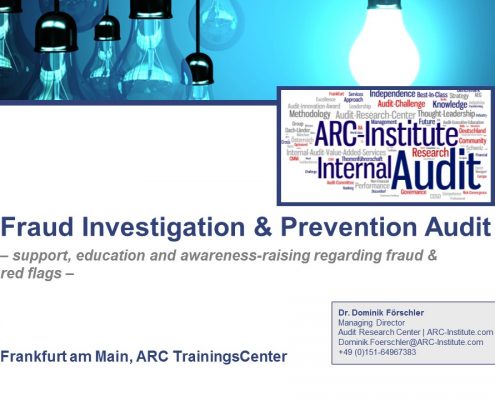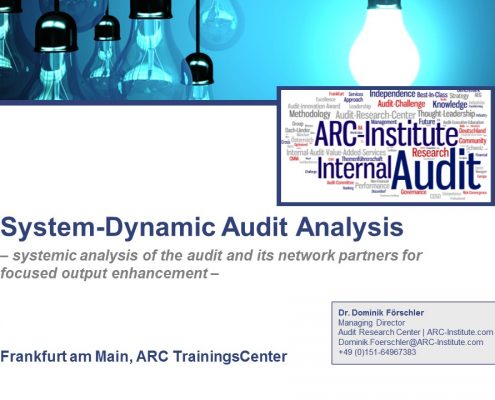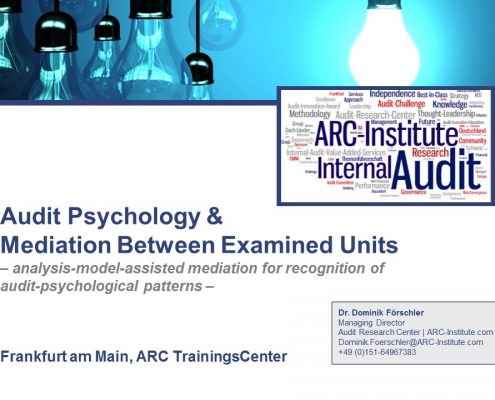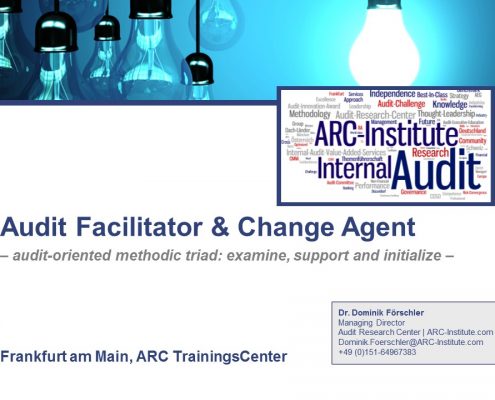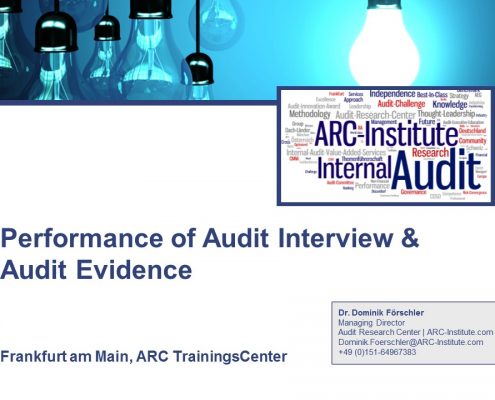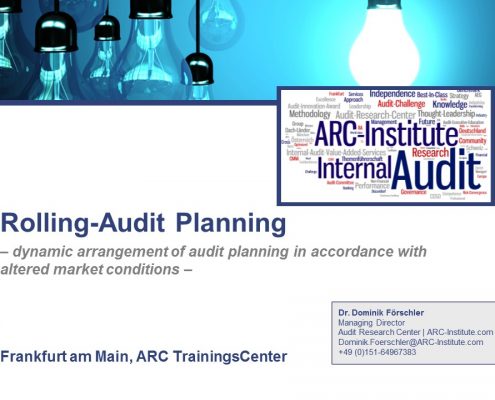Six Sigma for the Audit CTR Toolset
– operational audit excellence by means of risk-oriented application of Six Sigma tools in process-oriented audit examinations –
Objective:
ARC’s two-stage approach provides course participants first with an insight into the topic and the basic techniques related to the Six Sigma process-output quality-improvement strategy. At the same time, the curriculum demonstrates the improvement successes regarding the audit process that are achievable by employing Six Sigma tools. Thus, course participants receive a clear presentation of the relationships between Six Sigma and the company strategy as well as general quality-management systems.
Already subsequent to the first module, course participants are capable of producing improved audit results within the framework of process audits. Their analytic capabilities are enhanced through interaction with Six Sigma’s standard tools. Upon successful course completion, participants can contemplate the most timely process-analysis topics on equal terms with other risk-oriented administrative departments.
Directly subsequent to the second module, course participants are capable of employing Six Sigma tools with regard to audit processes and in connection with the classic DMAIC procedure. The DMAIC improvement process refers to a data-driven improvement cycle used for improving, optimizing and stabilizing business processes and designs. The DMAIC acronym is an abbreviation of the five improvement steps involved: Define, Measure, Analyze, Improve and Control.
Participants’ knowledge regarding the interconnectivity of “critical-to-risk” (CTR) factors enables them to contribute significant impulses within the audit-reporting framework. These impulses apply to corporate management and its examination of business and risk strategy in connection with the risk viability of individual segments within the company.
Upon completion of this course, participants understand Six Sigma audit methodology as a performance-capable instrument for the process- and system-oriented examination of audit objects with regard to their economic efficiency and conformity with applicable standards. Participants also are capable of interconnecting Six Sigma audit techniques with other standard management instruments and thus derive strategic audit initiatives within their respective audit landscape.
Topics:
- Starting point: Six Sigma refresher introduction
- Evolution of the kaizen philosophy to total quality management (TQM) and Six Sigma
- Distribution of roles within the Six Sigma application
- Illustration of fundamental Six Sigma terminology and practical utilization of tools
- Overview of the DMAIC process-analysis cycle
- Application of Six Sigma tools in practice-oriented case studies
- Acquisition of skills regarding individual Six Sigma analytic techniques:
- analytic technique based on the SIPOC process-improvement tool (the acronym SIPOC stands for suppliers, inputs, process, outputs and customers),
- voice of the customer,
- advanced analysis critical to customer,
- the measurement-gauge matrix,
SCAMPER checking (the acronym SCAMPER stands for substitute, combine, adapt, magnify put to other uses, eliminate – or minimize, rearrange – or reverse). This creativity-boosting technique is based on the notion that everything new is a modification of something that already exists.
and others
- Critical paths in the employment of Six Sigma within the internal audit environment
- Roles and responsibilities during interaction of audit-related Six Sigma methodology
- Formulation of detailed audit contracts
- Key figures for the evaluation of process capabilities
- Detailed audit-assignment areas
- Practical case study for applying the audit DMAIC process
- Implementation of achieved audit results in combination with audit risk metrics
- Interconnectivity of business and risk strategy within the framework of risk viability
- Summary and evaluation matrix regarding audit-related Six Sigma tools
Management Trainer
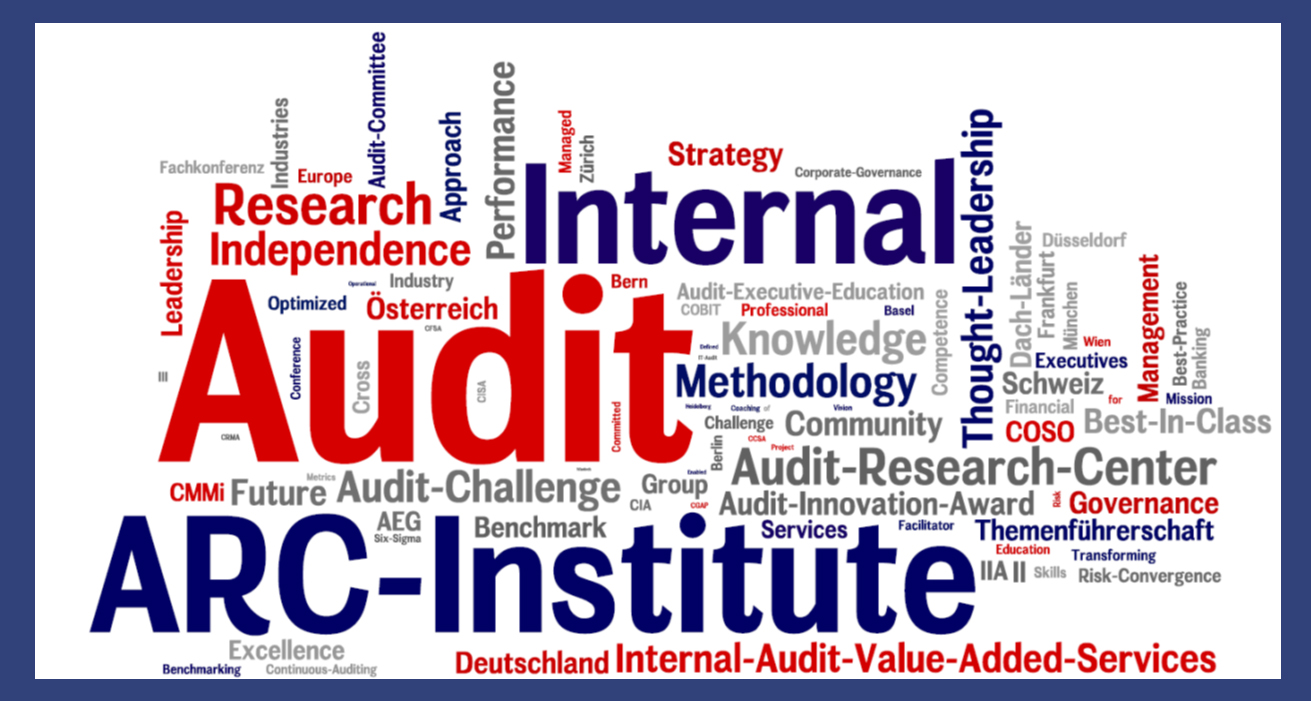
About the ARC Institute
With the Audit Research Center, the ARC Institute provides important impulses for the further development of the audit industry. The focus is on networking science and practice. The focus is on further and new development in cooperation with auditors, companies and associations in order to maintain practical relevance and to develop methods, tools and concepts that can be implemented. The results developed in dialogue with industry experts serve as a guideline and adaptation options in practice today, in order to increase the overall benefit of the company in the long term and sustainably with innovative auditing work.
In the spirit of thought leadership, the ARC Institute and the Audit Research Center stand for topic leadership and forward thinking in the area of internal auditing.
Currently, the ARC Institute supports not only leading supranational institutions in the context of research, consulting and personnel development projects, but also numerous listed companies in the three German-speaking countries of Germany, Austria and Switzerland.
Terms of participation and price
Each open training day is 890,- Euro plus VAT when booking the modules individually. Inhouse training conditions are based on individual pricing and travel expenses. After receipt of your registration you will receive a confirmation of registration with invoice. Please pay the registration fee directly after receiving the invoice. The registration fee does not include 19 % VAT. The price includes participation in the lectures of the booked event, lunch, coffee breaks and seminar documents.
At a glance
Target audience:
Employees and managerial staff from the internal audit function
Methodology:
Interactive workshop, discussion, game-theory strategy analyses according to US-American mathematician John Forbes Nash, Jr. and others, practical exercises, case studies, retrospective summary
Training / Training / Consulting period:
Bookings are based on an audit-situation analysis as well as a personal preliminary meeting (workshops without implementation generally cover 3-5 days of instruction).
Contact:
Would you like more details about ARC’s Audit Training & Consulting Services, or do you wish to book an appointment with its team? Please address your e-mail inquiry to Info@ARC-Institute.com or phone us at +49-2159-6945-904
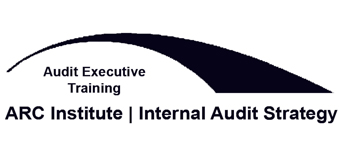
 ARC Institute Profile: Managing Director | Senior Equity Partner
ARC Institute Profile: Managing Director | Senior Equity Partner Tracie Marquardt
Tracie Marquardt ARC Institute Profile: Senior Engagement Manager
ARC Institute Profile: Senior Engagement Manager